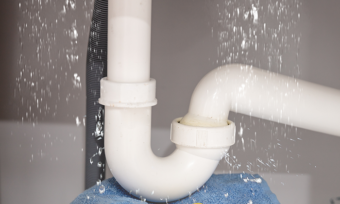Home and contents insurance policies typically come with specific terms, conditions, and exclusions that can vary between insurance providers. While the details may vary, there are some common factors that could potentially invalidate a home and contents insurance policy. Here are a few examples:
What can invalidate home and contents insurance?
Forgetting to pay premiums
It may sound obvious: if you don’t pay your premium when it falls due, you won’t be covered. The trouble is, in our busy lives, it’s easy to put bills on the backburner and forget about them altogether.
However, if you fail to pay the premium, your cover may be cancelled.
While the insurance company may offer a grace period, for example 28 days, after a certain point of unpaid premiums, your insurer can refuse to pay a claim or cancel your insurance. For example, if you’re a month behind on the payment, your policy could be cancelled without notice.
The main point is to stay on top of your home insurance premiums. Most insurance companies offer reduced premiums if you pay annually. However, many people choose to pay monthly. If you pay your premiums in instalments, opt to pay by automatic debit, either from your bank account or by credit card; this way you shouldn’t ever fall behind on your payments.
Not taking all reasonable steps to prevent loss
Your insurer expects you to take all reasonable steps to prevent loss and to keep your home in good condition. If you go out and leave a window wide open, or a door unlocked, and your house is subsequently burgled as a consequence, your insurer is going to take a dim view of any subsequent claim.
An insurer can also refuse to pay any claim leading from an act of recklessness or gross neglect, or if you fail to act in the way a reasonable person would, given the circumstances you face when the loss happens.
So if you start practising a fire-breathing act in your lounge room and burn your house down, don’t be surprised if your insurance claim is rejected!
Incorrect information
Providing incorrect or incomplete information when applying for insurance can lead to the invalidation of your policy. It’s crucial to provide accurate details about your property, its contents, and any other relevant information.
Remember, you must inform your insurer if your circumstances change, for example:
- You, your partner or any family member are convicted of a crime
- You, your partner or any family member have any insurance policy or claim voided, declined, cancelled, not renewed or have special terms imposed
- You change the address where your contents are typically stored
- You change the nature of the occupancy or security of where your contents are normally kept
- You change the use of your home or your profession, occupation or business if run from your home
Leaving your home unoccupied
Some insurance policies have restrictions if your property is left unoccupied for an extended period. If your home remains vacant for a specified period without notification to the insurance company, it could impact your coverage.
For instance, Tower applies an additional excess of $1000 in the event of a contents insurance claim when your home has been left unoccupied for more than 60 consecutive days.
→Related article: When do You Pay Excess on Home Insurance?
Renting out your home
If you decide to rent out your home, whether for the long or short term, the entire property or just a room, you need to inform your insurer. They may recommend that you take out a landlord insurance policy instead.
Failure to inform your insurer can lead to the invalidation of your policy.
→Related article: Guide to Renting Out a Room in Your Home
Unapproved alterations or renovations
Making significant changes to your property without notifying the insurer may result in issues with coverage. Always inform your insurance company about any renovations or alterations to ensure coverage is updated accordingly.
Negligence or lack of maintenance
Failing to maintain your property in a reasonable condition may result in a claim being denied. For instance, if damage occurs due to a lack of maintenance, like ignoring a leaky roof or faulty wiring, the insurance company might refuse the claim.
Criminal activity
If your property is involved in illegal activities, such as drug production or other criminal acts, your insurance might be invalidated.
Having other insurance policies
Most insurers won’t cover any loss or liability if you’re already covered for that loss under another insurance policy with a different insurer. Moreover, your insurer probably won’t contribute towards a claim under any other policy with another insurer.
→Related article: What Is Home and Contents Insurance and What Does It Cover?
Forgetting to complete a claim form
If your insurer requests you to complete a claim form, you usually have 30 days to do so. Failure to submit the form within this timeframe is likely to result in the rejection or non-processing of your insurance claim.
Compare home and contents insurance with Canstar
It’s crucial to carefully read and understand the terms and conditions of your specific insurance policy to ensure compliance and to avoid any potential issues with claims. If you have questions or concerns, it’s recommended that you consult with your insurance provider directly.

About the author of this page
This report was written by Canstar Content Producer, Caitlin Bingham. Caitlin is an experienced writer whose passion for creativity led her to study communication and journalism. She began her career freelancing as a content writer, before joining the Canstar team.







Share this article